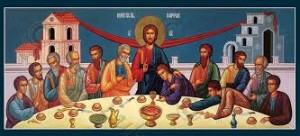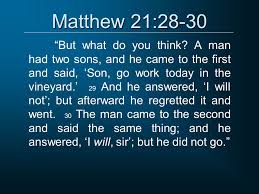…you use intention to trump action.
What do I mean by that? When I began as Prior, I noticed that when some brothers failed to do something I had asked, they would reply with a chuckle or confused look at say something like, “Oh, I didn’t mean to do that…” or “I had intended to do that, but then I thought…” The expectation was that if a monk’s heart is in the right place, then if he sins or fails in his duties, I should be quick to forgive. What was often missing was a genuine apology. I don’t write this to shame my brothers; I think that this is the default mode of many people today. Certainly it’s a temptation for me.
If we believe the great sociologist Mary Douglas, this appeal to an inner state (good intention) and lackadaisical approach to formal, external actions (duties to one’s superiors), is a product of a certain kind of social organization. If my place in society is very clear and determined, when I am connected by ties of blood and marriage, hierarchical chains of binding authority, and so on, then external ritual (including obligatory actions mandated by authority, apologies, formal recognition of persons, etc) becomes more important. If I am free to change jobs, move around, lose touch with cousins, and keep my options open, then internal states become more important.

It is common today for people to claim that the more advanced the form of religion, the more its adherents focus on internal (“emotional”) states. Mary Douglas demonstrated that the Congolese pygmies had a peculiarly “modern” approach to religious matters, when ethnographers studied them in the early 20th century. They used no discernible ritual or magic and were more interested in a feeling of personal well-bring or joy. This preference has more to do with the mobility of a hunting and harvesting group than with any kind of cultural advancement or primitivism.
When brothers enter our monastery, they come from a very loose culture in terms of stability, mutual obligations, and so on. An entry into a monastery from this perspective might seem to be a personal choice, a way to maximize internal joy and freedom. And the monastic life can, at times, serve these purposes if we choose to pursue them. Most monks in a contemplative community have very little contact with the outside world, and what contact they do have tends to be with devout, supportive persons who are often inclined to praise our way of life. Which of course feels good if we’re looking for that kind of thing. When a superior corrects or criticizes, it’s tempting to think, “Who is this guy? Everybody thinks I’m pretty swell. I don’t know why he’s picking on me for failing–in his eyes–in jobs that aren’t that important anyway.” And the rest.
Mary Douglas notes a major problem with the attempt to import this loose structure into the monastery. Loose communities lose the ability to understand the heavy ritual component that makes sense of the monastic life and the Christian life in general. “The perception of symbols in general, as well as their interpretation, is socially determined. [Natural Symbols (1996), p. 9]” She goes on to show that loosely articulated social structures make it impossible to understand the full range of meanings of symbols that were at home in a more clearly articulated structure. Monastic life has always been highly regimented, based in clear lines of authority and obligation, and therefore has generated a wealth of symbols. Men entering today, however, usually can’t read them correctly right away, and part of our conversion of life involves learning how to do this. And this in turn requires us to discover our new identity through the roles that are given to us in the life: novice, junior, priest, cantor, prior, cook.

In an icon, every detail is symbolic and fits into an elaborate cosmology. Touch one point of Catholic or Orthodox doctrine, and you set the whole vibrating. Von Balthasar had something like this in mind when he described truth as “symphonic.”
Now the Catholic liturgy is also the product of a highly articulated social body, the Church. The world being what it is today, most of us struggle to make sense of dense symbols like the Eucharist, the priesthood, a church building, an icon, and papal vestments. If Prof. Douglas is correct (and there is good reason to suppose that her general theses in Natural Symbols are correct), then the cure for our liturgical mystification is something like commitment. We must make our own the roles suggested (or even given) to us by the Church and by the locale we happen to inhabit. This means getting involved in a parish, treating one’s pastor like a pastor, as someone who has authority over one’s spiritual life. It might mean recommitting to certain formal structures in one’s family (and explicitly in a climate of faith): common meals with assigned seating, traditional celebrations of holidays. It might mean taking more seriously days of abstinence and fast, holy days of obligation, and so on,–anything that requires us to order our internal experience by the external ritualized and moral demands of Church discipline, and, importantly, not letting ourselves off the hook by appeal to good intentions.
